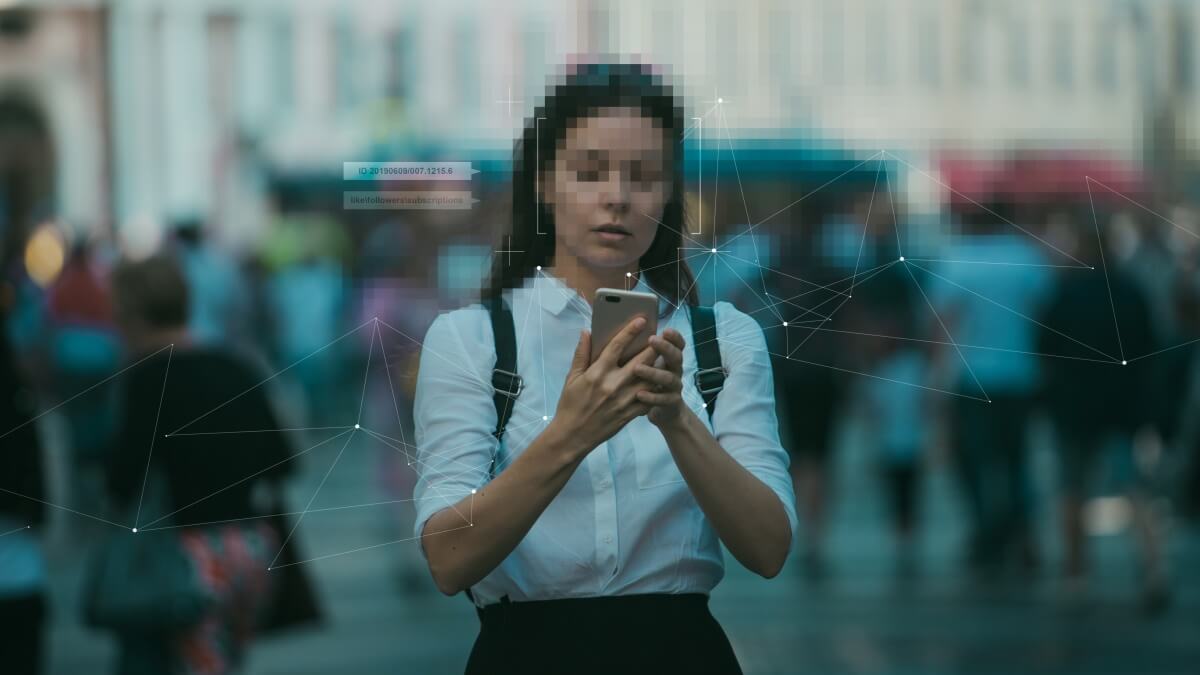Face Recognition has major privacy concerns
While many people use Face Recognition to unlock their devices or organize their photos, the technology has also given rise to some of the most powerful surveillance and security tools.
For example, it can be used for access control, home surveillance, or identifying the culprits of illegal activity.
No matter the use case, Face Recognition technology has the power to impact people’s lives significantly. As it becomes cheaper and more accessible, it raises many concerns regarding privacy and data protection.
For good reason, governments in America and worldwide are implementing regulations and laws to protect peoples’ biometric data.
At Xailient, our engineers and researchers have designed a way to ensure the Face Recognition running onboard smart home cameras is always privacy-compliant.
This is where Orchestrait, the AI management platform, comes into play.
If a company is thinking of implementing Face Recognition, it’s imperative to ask these questions:
- What privacy concerns should a company know about when it comes to Face Recognition?
- How is Face Recognition regulated in the areas a company wishes to deploy AI, and how do they keep up with these regulatory changes?
- Should the Face Recognition technology utilize an Edge or cloud computing method?
This article will answer these questions by taking a closer look at the effects of Face Recognition on privacy and exploring how to avoid legal liability.
Why are people concerned about Face Recognition and privacy?
Face Recognition can be used for identification and authentication purposes, and when Face Recognition is embedded in smart home devices, these capabilities provide an incredibly sophisticated home security option.
However, just like any other technology, Face Recognition also has disadvantages.
This is because Face Recognition is not just the mathematical information about a person’s face but can be the gateway to a host of other personal data an individual uses Face Recognition access.
Let’s explore the main Face Recognition concerns in more detail:
Data breaches and information security concerns
Vulnerabilities within a Face Recognition system can lead to significant data breaches.
For example, some Face Recognition apps with location services can track people without needing approval.
While hackers can gain access to an individual’s face data for all sorts of nefarious purposes, they can also generate “master keys,” where non-living spoofs with similar facial features are created.
But where do hackers get the data for such creations?
They get the data from system databases and cloud storage providers.
Most consumers find it incredibly alarming that their face data can be copied or duplicated.
Furthermore, stolen face data can be used to access other personal data concerning finances, home and work information, and any other data connected to a system that’s been breached.
Accuracy problems within Face Recognition systems
Face Recognition uses face tracking and analysis.
To achieve this, Face Recognition technology defines the depth and features of a person’s face based on pre-recorded information about their facial structure.
The problem is there is still room for false detection.
Sometimes, bias can be the culprit. For example, suppose most of the data used to train a Face Recognition model comes from studying Caucasian faces over other ethnic groups. In that case, the Face Recognition AI will lack diversity, resulting in false positives.
What are the current Face Recognition privacy laws?
With all these concerns surrounding Face Recognition technology, national governments, international groups, and unions are enforcing laws and strict regulations surrounding the use of Face Recognition.
This serves as a heads-up to service providers to upgrade and adapt their security and privacy features so that their Face Recognition technology complies with the laws enforced where their cameras are deployed.
More importantly, companies should take a proactive approach so they’re not caught out by emerging rules and regulations (and hefty fines).
Here are some of the major policies and laws surrounding Face Recognition privacy:
Europe’s General Data Protection Regulation
General Data Protection Regulation (GDPR) laws in Europe and the UK provide a rigorous framework for using Face Recognition systems, such as when data is used for a government investigation.
Illegal data usage is also heavily penalized under this legislation.
The US’s Face Recognition data protection landscape
Many states in the US are enacting laws in response to the rising number of data breaches in their jurisdictions.
Illinois, Texas, Washington, California, and New York are just some states currently cracking down on Face Recognition technology.
In New York, for example, a law called Stop Hacks and Improve Electronic Data Security (SHIELD) requires implementing a cybersecurity program and protective measures for New York residents.
It’s also important to be aware of Face Recognition bans in certain places such as San Francisco, Somerville, Oakland, San Diego, Boston, and Portland.
Companies should also be mindful that federal data privacy laws could be implemented soon.
Xailient’s Orchestrait offers privacy-compliant Face Recognition
So, the question is, how do companies maximize Face Recognition systems in an ethical privacy-compliant way?
At Xailient, we understand that devising a privacy-compliant data protection system for deployed cameras is time-consuming and costly.
But fret not because this is where the Orchestrait platform comes in to take care of all your AI management concerns.
Xailient’s Orchestrait platform monitors drift, delivers over-the-air updates, and ensures that deployed AI is always privacy-compliant.
In addition to the advantages mentioned above, Orchestrait allows for automated data collection that adheres to privacy best practices. On top of this, quickly updating training data can help eliminate bias if any presents itself.
Orchestrait allows for collecting privacy-compliant training data to build application training data sets. This ensures a business’s data collection always complies with privacy regulations such as California’s Consumer Privacy Act (CCPA) and Europe’s GDPR.
The benefits of Edge Face Recognition
The Orchestrait management platform is designed for Face Recognition AI at the Edge, and being at the Edge brings many benefits to Face Recognition technology. Chief among them is privacy compliance.
To understand this better, let’s define what we mean by ‘Edge.’
The term ‘Edge Computing’ means that instead of having all your data and processing power in one centralized location (the cloud), it’s located closer to users’ (on the device itself or at the Edge of the network).
In traditional video-based Face Recognition solutions, video data is moved from the device to the cloud before delivering the results back to the client.
With Edge computing and Edge AI, on the other hand, cameras are enabled to selectively record and send footage which includes images of peoples’ faces, if any data needs to be sent to the cloud at all.
This method reduces the amount of recorded and transmitted data, resulting in lower bandwidth use and lower transmission and storage costs.
Primarily keeping data local and only sending it off when necessary also has significant privacy advantages.
For example, Edge Face Recognition is more customizable for privacy purposes, such as removing or encrypting faces or details (or implementing face redaction) at the video feed’s source.
Keeping stored face data out of the cloud is also advantageous, as the cloud is more susceptible to data breaches and attacks from hackers.
Additionally, in cloud computing, customer data is placed in the hands of a third party, offering users little control over what happens to their personally identifiable information.
Your AI management platform and computing method matter
As we have explored, Face Recognition is a fantastic technology for security and can offer peace of mind to customers who want to protect their homes.
But, like all technology, concerns are associated with it, and new laws and regulations are popping up.
As Smart Camera companies need to deploy Face Recognition to stay competitive, it’s essential to do so while keeping in line with the law and, above all else, making sure customer data is safe and secure at all times.
It’s the right thing to do and helps smart camera companies build trust.
The Orchestrait management platform offers a simple, efficient way to ensure that Edge Face Recognition in deployment is always privacy-compliant. Orchestrait can also check for regulation changes, so businesses are never caught out.
The computing method and type of AI used in Face Recognition systems also matter when protecting peoples’ biometric data.
Edge computing and Edge AI are lucrative options for Face Recognition systems as they allow for drastically increased efficiency and usability, lower operational costs, and enhanced security and privacy.
Laws and regulations will continually evolve to respond proactively to new technologies.
To take advantage of opportunities, companies must adhere to best practices to get the most out of their tech while building trust and goodwill with their customers.

